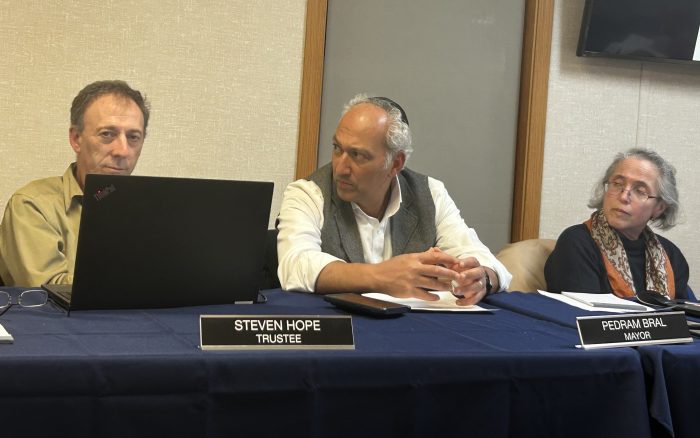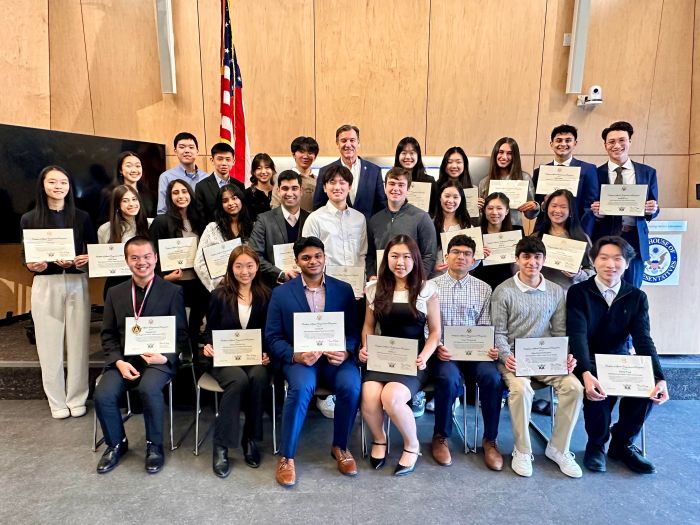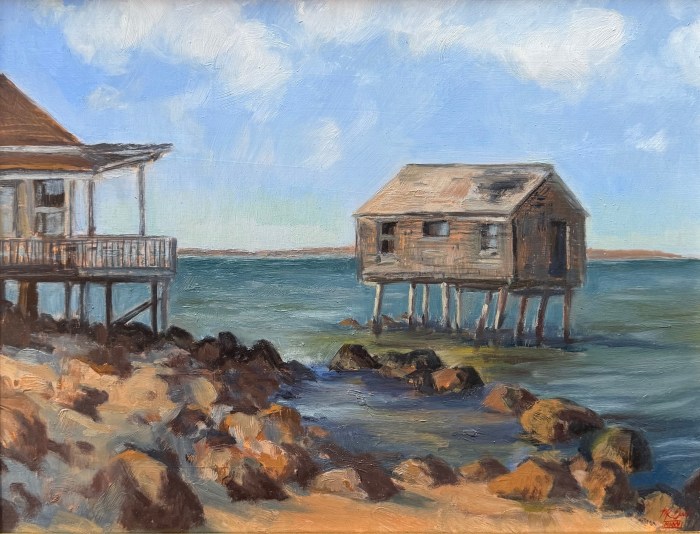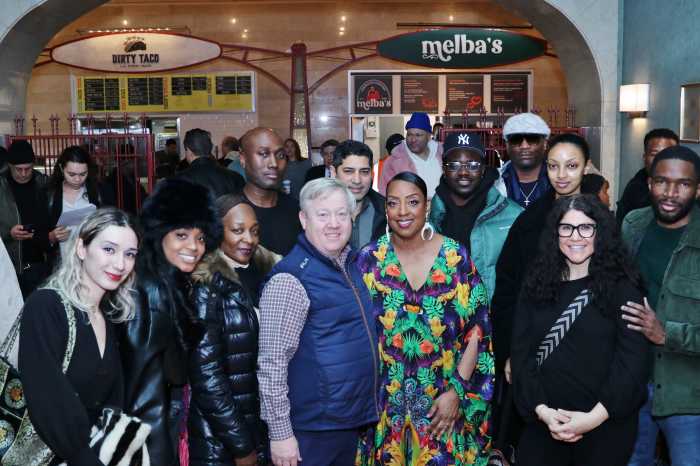By Nick Liu
To be fair, the performance was actually pretty good. Huntington High School’s very talented drama club told the story of Millie Dillmont through a variety of colorful songs and dance numbers. I was especially impressed by the final reprise of the “Thoroughly Modern Millie” theme song, which was met with a standing ovation. This being said, the play’s racial undertones makes it completely unacceptable to be performed at a high school.
In the play, set in 1922, Millie Dillmont, a girl from Kansas, moves to New York with dreams of marrying a wealthy man. She stays at the Priscilla, a hotel frequented by aspiring actresses. Soon, however, she finds out that Mrs. Meers, the owner of the hotel, is running a devious plot with Chinatown’s underworld to sell orphaned boarders into forced prostitution with the help of her two henchmen, brothers Ching Ho and Bun Fu. Although hesitant to follow Meers’ plan, Ho and Fu, go along with it in order to bring their mother to the states from Hong Kong.
This show was performed in two Long Island High Schools, in Huntington and Levittown, on April 5 and 6. At Huntington High School’s production, which I attended, Mrs. Meers, Ching Ho, and Bun Fu were played by Caucasian students, and the actress playing Mrs. Meers was in yellow face. All three characters act in the stereotypical “Asian” way, mispronouncing words, taking characteristically small steps and behaving subserviently to others.
Note also that Ching Ho and Bun Fu are not real Asian names. During Huntington’s performance, the two Caucasian male students playing the Chinese brothers spoke incomprehensibly while crew members held up subtitles. While I realize that this could’ve been a legitimate attempt at speaking Chinese, to the primarily white audience it sounded like gibberish, and attempted conversations between the brothers were met with rowdy applause and laughter. I’m not sure what’s more offensive—actors speaking gibberish on stage and pretending it was Chinese or the audience laughing at a genuine attempt to make the show more realistic.
Mrs. Meers, the play’s main antagonist, is a white woman pretending to be an Asian. She puts on makeup to look “Oriental,” and dresses, acts and talks the way Chinese women were thought to be like in the 1920s. It’s highly likely that if Meers tried to imitate an African-American lady and was in blackface, the play would’ve been met with fierce critique. So, why is it acceptable for Meers to pretend to be Asian?
While I believe neither the schools nor their music directors intended to offend the Chinese community, I question the two schools’ choice to put on a show like this in the first place, especially knowing this play was criticized for its racial insensitivity in the past.
Thoroughly Modern Millie, although adapted for Broadway in 2000, was based off of a 1967 movie set in 1922. The 1920s were a time when a feeling of white superiority was prevalent in society. During this time, Asian immigrants faced exclusionary laws and discrimination and fought very hard to maintain their dignity.
It should be clear in 2019 that this play is unfairly providing a historically inaccurate view of Chinese immigrants in the U.S. Thoroughly Modern Millie centers on a country girl’s view of the “American Dream,” the ideal of following one’s ambitions. However, the truth is that Chinese immigrants came to the U.S. following similar beliefs—work hard, earn money and eventually take care of a family. Chinese immigrants made significant contributions to American society, establishing communities in most major cities and building railroad tracks connecting the country. Unfortunately, Thoroughly Modern Millie overlooks these contributions, portrays Asian immigrants in an inferior and derogatory way, and leaves negative imprints on the community.
Huntington High, a school of 1,489 students, is 2.1 percent Asian, according to Niche.com. That’s 31 students who, sitting in the audience, would question why their school was making a joke at their expense. And, what about the majority of non-Asian students? According to one Long Island mom, some Asian students have already heard others saying to them, “I can speak Chinese now. It’s Ching Chang Chong, Ching Chang Chong.” Others have heard, “Chinese are stupid and ignorant.” Comments like these should prove that this play should never have been chosen to be performed at the schools.
The show is categorized as “comedy/farce,” but I fail to find the humor in its overdone stereotypes. The play is titled Thoroughly Modern Millie, but the truth is that there’s nothing modern about century-old stereotypes and comedy saturated in ignorance. Comedic premises like these treat the Asian community as the laughingstock of American culture and have no place in a forward-moving society.
The job of a high school is to educate children and prepare them for college and the real world—putting on a show with racial undertones would be teaching kids the wrong thing. Thoroughly Modern Millie is an outdated show and why a high school would choose to put it on over so many other wonderful and inspiring musicals is beyond me.
Nick Liu is an eighth grader at Great Neck South Middle School.






























